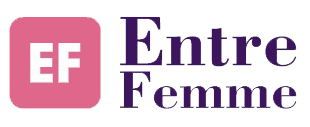Unlock the Language of the World as You Surf: Easy Language Mastery
In today's increasingly connected world, the importance of mastering multiple languages cannot be overstated. Learning new languages has become essential whether for professional opportunities, travel, or simply broadening our horizons.
- David Parker
- May 13, 2025
- 0 Comments
- 2353 Views
However, many face a significant challenge: effectively integrating language learning into their busy schedules and active lives. The solution to this dilemma lies in multitasking learning, an innovative method that enables acquiring new language skills while surfing the web. In this article, we will explore this groundbreaking approach, unveiling the unexpected benefits of online learning while browsing the internet. Get ready to discover the keys to mastering a new language without compromising your busy daily routine.
I. The Ease of Language Learning: Myths and Realities
This section delves deep into the complex world of language learning, demystifying some of the enduring myths surrounding this often daunting endeavor.
1. Analysis of Factors that Make Language Learning Easy or Difficult
Language learning, often perceived as an insurmountable challenge, is influenced by various factors. The environment one is in, access to quality educational resources, and the frequency of interactions with native speakers all play a crucial role. We will also examine the impact of linguistic similarity between the native and target languages, revealing how this can either facilitate or complicate the learning process.
2. Demystification of Preconceived Notions about Language Learning
Preconceived notions about language learning can hinder our progress. For instance, the idea that age limits our ability to learn a new language is widely contested by recent studies in neuroscience. We will explore these common myths and present scientific evidence to enlighten readers and instill the confidence to pursue language learning at any age.
3. The Role of Motivation and Individual Approach in Language Learning
Motivation is a powerful driving force in language learning. We will explore different sources of motivation, whether intrinsic (such as the desire to communicate with other cultures) or extrinsic (such as professional opportunities). Furthermore, the individual approach plays a key role. Some prefer formal learning with structured courses, while others thrive in informal self-learning environments. We will highlight the importance of understanding one's learning style to maximize linguistic progress.
II- The Benefits of Multitasking Learning
In this section, we explore the significant advantages of multitasking learning, demonstrating how simultaneously learning while browsing the internet can be a game-changer in language acquisition.
1. Efficiency of Simultaneous Learning While Surfing the Web
The simultaneous integration of language learning into our online activities enhances efficiency dramatically. Unlike traditional methods that require dedicated study time, multitasking learning allows individuals to blend language acquisition into their daily routine seamlessly. This effortless integration saves time and ensures consistent exposure to the target language, resulting in a more natural and intuitive grasp of linguistic concepts.
2. Cognitive Advantages of Multitasking Learning and Its Impact on the Brain
Engaging in multitasking learning exercises the brain in unique ways. It sharpens cognitive functions such as attention, memory, and problem-solving skills. Studies have shown that the brain's ability to adapt and learn new information is significantly enhanced when multiple tasks are performed simultaneously. By navigating the complexities of a new language while performing everyday online tasks, individuals are effectively training their brains to be more versatile and adaptable, leading to improved language retention and comprehension.
3. Enhanced Retention of Linguistic Information Through This Method
One of the most remarkable benefits of multitasking learning is its positive impact on information retention. When language learning is seamlessly integrated into online activities, the brain creates powerful associations between the acquired language skills and real-life contexts. These contextual connections serve as memory anchors, making recalling vocabulary, grammar rules, and cultural nuances easier. As a result, learners retain linguistic information more effectively and for extended periods, solidifying their language proficiency in a way that traditional classroom learning often struggles to achieve.
III- Online Tools and Resources for Language Learning
1. Introduction to Specific Language Learning Applications and Extensions Online
A plethora of language learning applications has emerged in recent years. Some focus on pronunciation improvement, while others emphasize vocabulary expansion. We will present a selection of specific applications and extensions that offer interactive exercises, educational games, and features for conversations with native speakers. These tools employ innovative teaching methods to make language learning more engaging and efficient than ever before.
2. Exploration of Educational Websites and Interactive Language Communities
Beyond applications, numerous educational websites offer free lessons, interactive quizzes, and discussion forums. We will explore these online resources, highlighting reputable websites that provide quality educational content in various languages. Additionally, interactive language communities enable learners to practice their skills with native speakers and other learners worldwide, creating a dynamic and collaborative learning environment.
3. Effective Use of Social Media to Enhance Language Skills
Social media platforms are not just for connecting with friends; they can also be powerful tools to improve language skills. These platforms grant access to various authentic language content and allow learners to actively engage in conversations, receive feedback, and broaden their cultural understanding.
IV- Maximizing Online Learning: Practical Tips
1. Time Management to Integrate Language Learning into Daily Routine
Time management is crucial for successful online learning. We will introduce planning techniques tailored to busy schedules. It involves finding regular time slots and dedicating them to language learning. Learning effectiveness often depends on consistency and common commitment, whether in the morning before work, during lunch breaks, or in the evening.
2. Creating a Supportive Online Environment for Language Learning
The online learning environment plays a significant role in language progress. We will explore interactive learning platforms, educational forums, and task management applications specifically designed for language learners. It's also essential to optimize online environment settings, such as notifications, to minimize distractions and enhance focus.
3. Importance of Social Interactions to Practice the Acquired Language Online
Social interactions are crucial for strengthening language skills. We will emphasize the importance of participating in discussion forums, joining language groups on social media, and engaging with native speakers online. These interactions provide valuable opportunities to practice the language in authentic contexts, improve verbal fluency, and explore the cultural nuances of the learned language.
We strongly encourage everyone to adopt this approach, turning every online moment into an enriching linguistic learning opportunity. Not only does this open the door to deeper intercultural communication, but it also expands professional horizons, providing a valuable edge in today's globalized world.
By investing in acquiring robust language skills, we enrich ourselves personally while contributing to a world where understanding and linguistic diversity are celebrated. So, dive into this online learning adventure and explore languages countless opportunities. Bon voyage in the rich and diverse world of languages!

 | Unlock Success with Our Guide
| Unlock Success with Our Guide



0 Comments